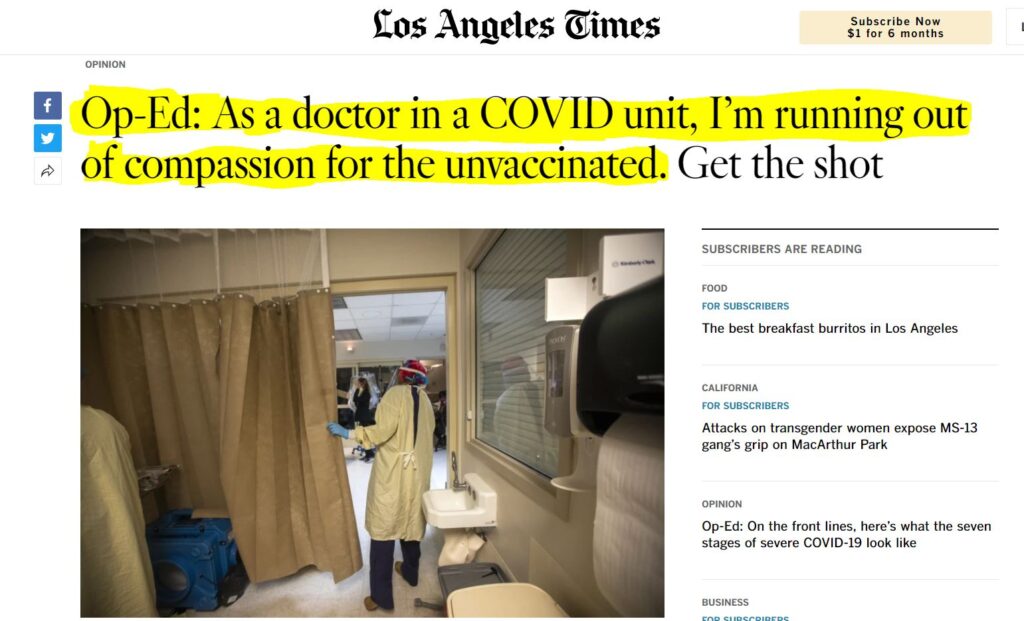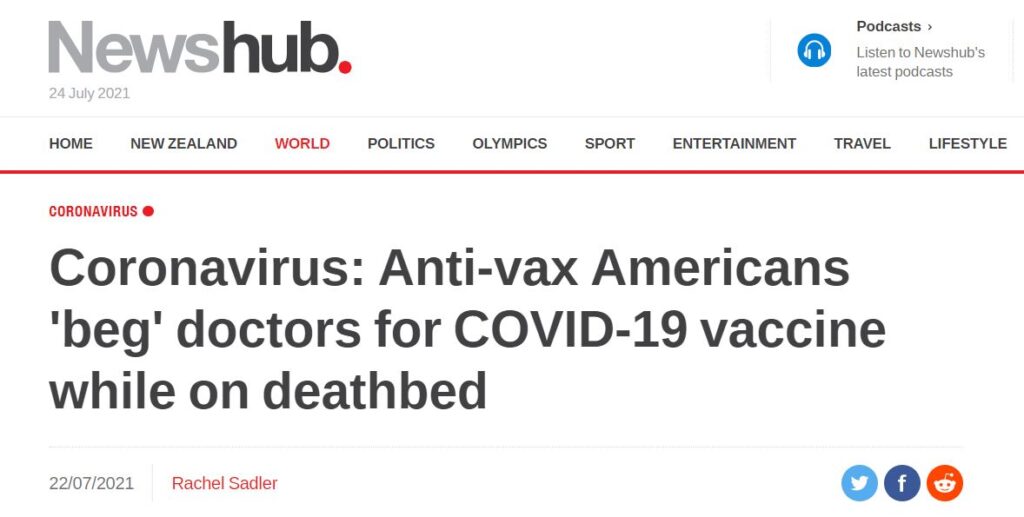Critical Media Studies II: It’s The Government, Stupid
Following up on my previous post, there’s certainly no shortage of curious COVID-19 mainstream media coverage deserving of an actual examination.
Below is a recent headline from the Los Angeles Times:
First and foremost, the article is an op-ed. This concept alone may deserve a separate discussion. In principle op-eds are a useful feature for a newspaper to have. In reality, it allows a newspaper to renounce all editorial responsibility for printed content.
In this particular case, a Los-Angeles-area doctor is describing how her patience is at an end, and as more COVID-19 patients are rolled through the door, she has rapidly diminishing compassion for each new individual that she treats. The doctor goes on to illustrate this dying compassion for one such patient as she describes her interactions with that patient and the treatment provided.
The Los Angeles Times is essentially rubber stamping a point of view that it’s OK for doctors to not have normal compassion for an individual patient, based on the previous 1,000 patients that were rolled through the door.
Was this patient a revolving-door patient that got admitted to this hospital a dozen times? No, of course not. As far as the reader can tell, that was his first visit to the hospital.
In the article, the doctor made a great case for why she is angry and for why she is frustrated with the situation as it pertains to the aggregate.
The problem is that she is misapplying that blame to a single individual. The individual is responsible for what they have done as an individual. They’re not responsible (as far as we know) for the previous 1,000 patients that were admitted.
Furthermore, that doctor’s completely incorrect state of mind is easily demonstrated by asking the following question: Would this doctor have low compassion for that individual patient if that patient had been the only COVID-19 patient at that hospital? Of course not. You can bet the doctor wouldn’t even remember the patient, much less condemn him. In both cases, the individual patient is exactly the same. The frustration the doctor is having is purely with the aggregate.
The entity that typically deals with problems as they pertain to the aggregate is the government – in this case the federal government. The government handles public policy.
As it happens, the CDC (up until recently) has exercised virtually unprecedented executive authority, stating people did not have to pay their landlords due to the COVID-19 pandemic. This type of declaration had every veritable hallmark of a “We’re All Gonna Die” emergency. The thing is that, if that were true, such extraordinary measures aren’t really that different than just mandating people take the vaccine. The point is that, as it pertains to COVID-19, there’s no question the federal government clearly understands the concept of extraordinary measures. In fact they have already taken them – just not the ones many doctors want.
If a medical professional is angry about the aggregate situation, there is an entity that’s responsible for addressing those concerns, and that entity is the government, and the more dire they believe the situation is, the more of a government responsibility it is.
The aggregate problem is not the responsibility of an individual patient – no matter what they did or did not do wrong.
The doctor in the op-ed articulated a significant complaint, but she did not direct it to the proper channel. She did not direct her anger and frustration to the proper channel.
Newspapers should never rubber stamp a point of view that endorses doctors assigning the wrong level and the wrong dimension of blame to a single patient.

